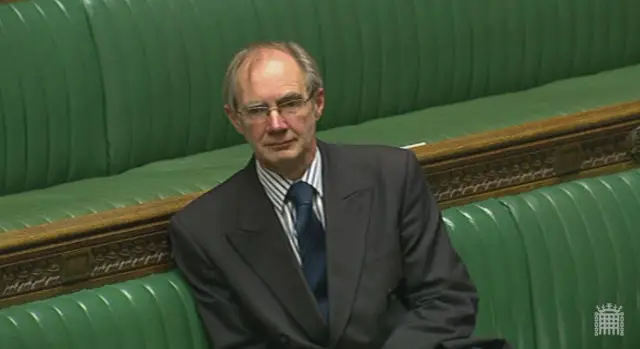Isle of Wight Conservative MP Andrew Turner has, for a while, attempted to persuade the Isle of Wight that transferring Island Line trains into the hands of the community was a good idea. He threw himself behind strongly suggesting that it was a good idea that needs to be seriously explored.
Future of rail line questioned
The difficulty for his position is that Islanders are slowly starting to realise what this could mean for the continued existence of the railway on the Isle of Wight.
OnTheWight first brought this concern to the attention of the wider Isle of Wight nearly two weeks ago.
Four days ago, on Friday, the County Press ran a story picking up on this, entitled, “Save our Trains”.
Attempts to defend his position
Clearly Andrew had to defend his position, so he has issued the following statement:
Community ownership provides a degree of commitment to local enterprise and an understanding of local needs which can lead to much better services and ultimately growth.
Shanklin Theatre and the Waterside Pool are good examples on the Island where community ownership and management has transformed the fortunes of the enterprises.
Island Line is vital to the Island, but is such a small part of the major rail franchise which comprises South West Trains that it receives very little in the way of innovation and new investment. It could be said to exist on a care and maintenance basis.
Anybody who has ridden the line recently will know that there are serious problems with the infrastructure – put simply the current model of ownership has let the Island Line deteriorate and shows no sign of change. The £3 million subsidy figure is an approximation based on the gap between Island Line income at about £1 million and its costs at about £3 million.
On top of this, there are additional costs incurred because of the dilapidated state of the rolling stock and infrastructure. Various presentations by South West Trains and others to a wide range of stakeholders have confirmed all of the above on a regular basis.
The Government believes in transferring decision making to local level wherever possible. I believe that the Island Line is a vital asset to the Island and we should explore whether it is well suited to a local ownership model. That could attract new innovative thinking and additional forms of investment.
Of course we will need continued support and funding from Government over a significant period of time, and nobody is suggesting that a community ownership company could or would take over Island Line in its existing poor state of repair. However, amuch better deal may be available to us by tackling the gap between costs and revenue and securing a deal which will revitalise the whole network.
This could only be achieved by changing the nature of the operation. It is well known that Island Line is in need of substantial investment. Unless we as an Island community show that we are prepared to consider change and look for a better operating model, the substantial subsidy we currently have will ultimately be seen to be poor value for the tax payer. This is a political reality and is particularly true at a time when there is substantial change anticipated in the way rail network is funded nationally.
I will fight hard to retain Island Line but I want us to at least consider a new approach to unlock the investment needed. Very few people appreciate that Island Line, as part of the National Rail Network is subject to the same regulations as high speed trains running on the West Coast mainline! They are very different organisations offering very different services, and many rail experts (including those in the Department for Transport) believe that a lighter regulatory regime would provide a better model for the future in some areas. This would enable costs to be reduced and services enhanced.
The whole point of the initiative to launch the Island Transport Task force is to provide the mechanism and expertise against which innovative and creative plans for improving all forms of transport services to, from and on the Island can be assessed.The Island Line is a vital component of the our transport infrastructure and I would expect, as a matter of urgency to at least see a dialogue start to consider the best way forward in partnership with Government.
Ultimately, the way forward must be determined by the Isle of Wight Council – it is the transport authority. I am willing to help them in their dialogue with the Government, but I think it is important that as the Island’s MP I help to explain the way in which the Government is thinking about supporting local investment plans.
We need to ensure that opportunities are not lost because of indecision, political infighting or a complete unwillingness to even consider different ways of doing things. I’m glad to say that so far, the Council has shown considerable cohesion on the issue of transport policy. It shouldn’t be a political football and I feel confident that they will soon start to make progress on putting together the Taskforce to examine the options for the future of Island transport. That approach is being adopted elsewhere and has the strong support of the Government.
It is up to the Council to determine how best to establish the Task force but I am sure that the review of the future of Island Line will form a distinct but integral part of their work. I understand that an independent, expert Chairman will be sought and will start to put together a small team of professional specialists. I’m sure we will be looking with the Council and the Government at how the Task force will be funded to make sure that no further financial burdens are imposed on the Council or local council taxpayers.
Nick Finney has been assisting both me and the Council as an unpaid Transport policy adviser.
Image: Screen grab from parliamentlive.tv coverage of 13 October 2014 debate





